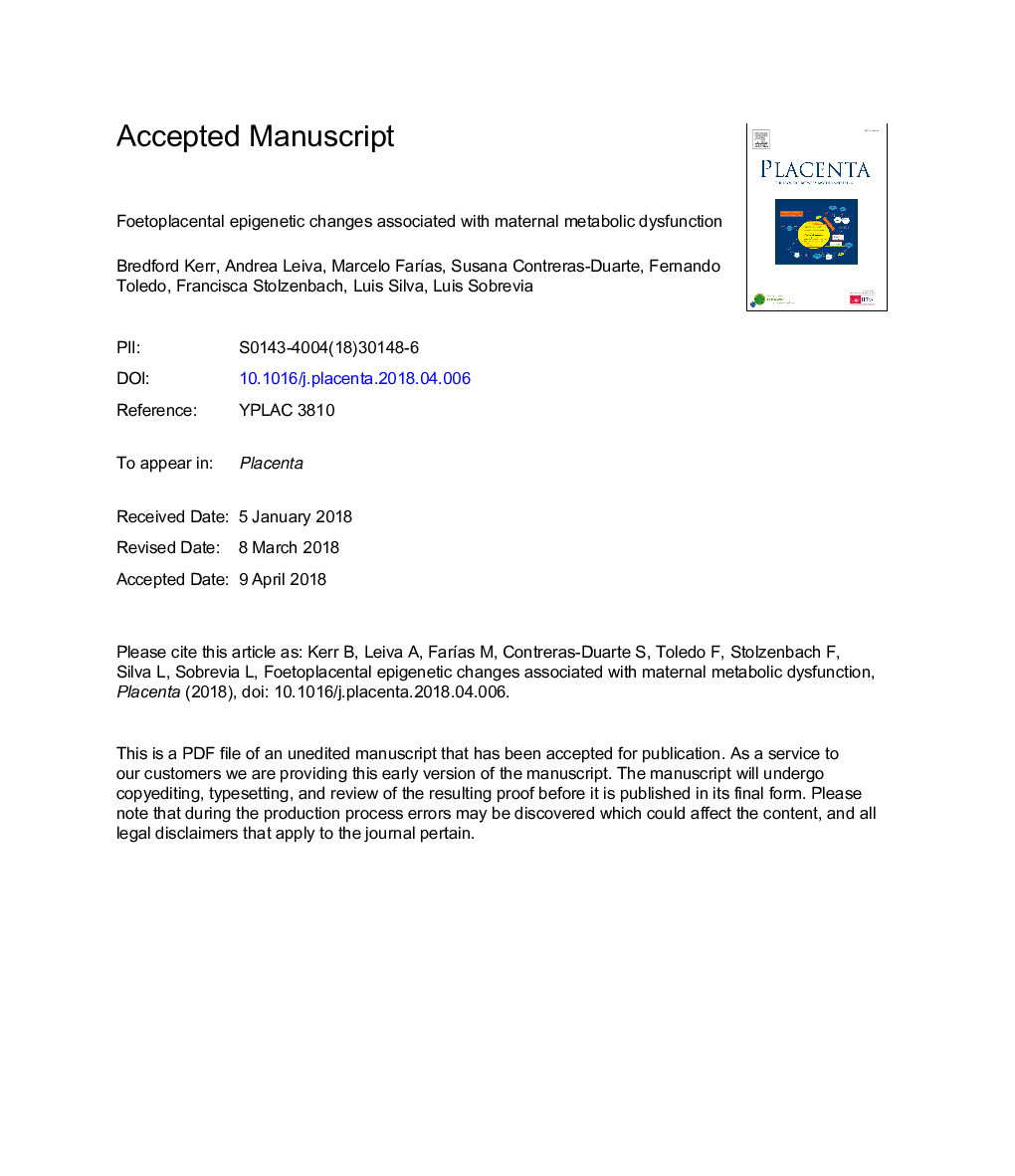| Article ID | Journal | Published Year | Pages | File Type |
|---|---|---|---|---|
| 9955265 | Placenta | 2018 | 32 Pages |
Abstract
Metabolic-related diseases are attributed to a sedentary lifestyle and eating habits, and there is now an increased awareness regarding pregnancy as a preponderant window in the programming of adulthood health and disease. The developing foetus is susceptible to the maternal environment; hence, any unfavourable condition will result in foetal physiological adaptations that could have a permanent impact on its health. Some of these alterations are maintained via epigenetic modifications capable of modifying gene expression in metabolism-related genes. Children born to mothers with dyslipidaemia, pregestational or gestational obesity, and gestational diabetes mellitus, have a predisposition to develop metabolic alterations during adulthood. CpG methylation-associated alterations to the expression of several genes in the human placenta play a crucial role in the mother-to-foetus transfer of nutrients and macromolecules. Identification of epigenetic modifications in metabolism-related tissues of offspring from metabolic-altered pregnancies is essential to obtain insights into foetal programming controlling newborn, childhood, and adult metabolism. This review points out the importance of the foetal milieu in the programming and development of human disease and provides evidence of this being the underlying mechanism for the development of adulthood metabolic disorders in maternal dyslipidaemia, pregestational or gestational obesity, and gestational diabetes mellitus.
Related Topics
Life Sciences
Biochemistry, Genetics and Molecular Biology
Developmental Biology
Authors
Bredford Kerr, Andrea Leiva, Marcelo FarÃas, Susana Contreras-Duarte, Fernando Toledo, Francisca Stolzenbach, Luis Silva, Luis Sobrevia,
